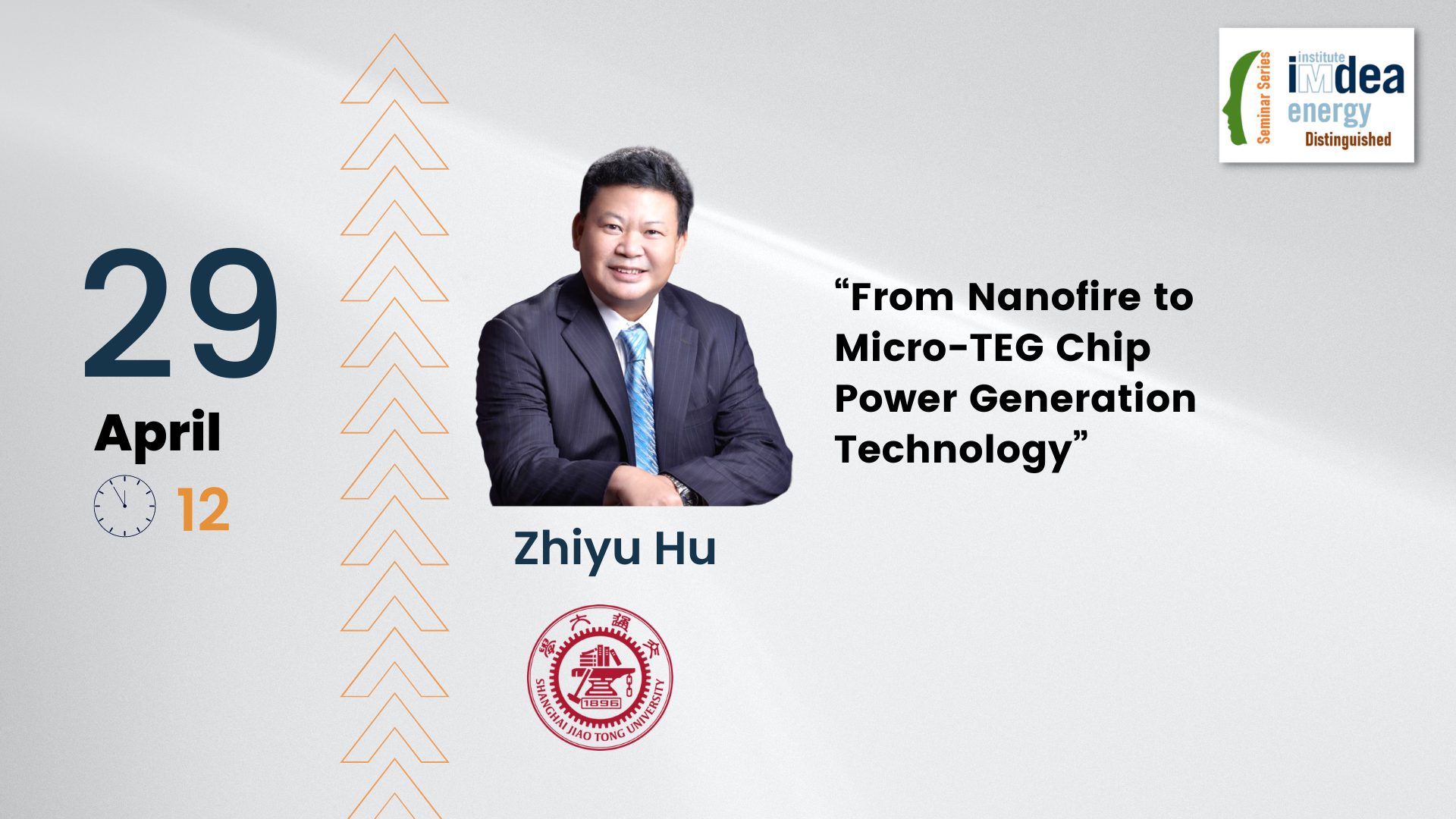Distinguished Seminar: «From Nanofire to Micro-TEG Chip Power Generation Technology»

Summary
In the history of human civilization, the ability to control and use fire has been a crucial factor shaping the progress of societies. However, traditional high-temperature combustion methods suffer from issues such as low energy efficiency and environmental pollution, making it imperative to find more efficient and cleaner energy utilization methods. Thermal energy is the fundamental form of energy, and exploring more effective ways to utilize it on the micro and nanoscale has become an attractive research direction.
Nano-fire technology achieves controlled ignition of fuel on the nanoscale through chemical catalysis, leading to efficient and precise conversion into thermal energy. This combustion process does not require ignition; it only occurs on the surface area where nano-catalyst particles are present, leaving areas without catalysts unaffected. Through micro and nano-manufacturing techniques, the research team successfully created a two-dimensional catalyst pattern with a thickness of only 20nm, forming an ultra-high thermal gradient exceeding 1300K/mm.
Simultaneously, micro-nano power generation chip technology, as a zero-emission clean energy approach, relies on the electron-phonon coupling effect within materials to directly convert thermal to electrical energy on the chip. Based on the «thermal scale effect» theory, the team conducted comprehensive research ranging from theoretical innovation, device development, material preparation, device manufacturing to demonstration validation. Breakthroughs were achieved in nanostructuring multi-layer thermoelectric materials and micro-nano manufacturing technology, resulting in the successful development of the world’s highest integration thin MEMS micro-nano power generation chip, incorporating over 60,000 thermoelectric pairs.
This micro-nano power generation chip demonstrates significant thermal-to-electric energy conversion efficiency under minimal temperature differences (as low as 0.001K). Experimental results validate the broad application prospects of this technology in ultra-high precision temperature difference sensors, scaled micro-temperature difference power generation (such as utilizing industrial waste heat or environmental thermal energy for power generation), and long-life isotope chip nuclear batteries.
This research provides a novel approach to addressing energy challenges, particularly the innovative use of thermal energy on the micro and nanoscale, with the potential to drive advancements in clean energy technologies.
Short bio
Prof. Zhiyu HU Ph.D. MBA FRSC
Recipient of the National Talent Program, Professor Class II, Zhi Yuan Distinguished Professor at Shanghai Jiao Tong University (SJTU), is an academic leader of the National Key Laboratory of Micro/Nano Fabrication Technology at Shanghai Jiao Tong University (served as director from 2012 to 2018), and Director of the Institute of NanoMicroEnergy at Zhang Jiang Institute of Advanced Study of SJTU. He was a staff scientist at the Oak Ridge National Laboratory of U.S. Department of Energy. He is serving as a fellow or guest professor in multiple domestic and international academic organizations, and is the funding Deputy Editor of ECS Sensors Plus and a member of Editorial Advisory Board. Has published over 160 research papers and authored 5 monographs/textbooks. Has received dozens of scientific research and teaching awards domestically and internationally, holds several dozen invention patents. Hie primary research interests include micro-nano-scale energy conversion, micro-nano power generation chips, advanced sensors, and nanostructured functional materials.
El evento está terminado.
Fecha
- Abr 29 2024
- ¡Caducado!
Hora
- 12:00 - 14:00
Localización
- Auditorio IMDEA Energía


